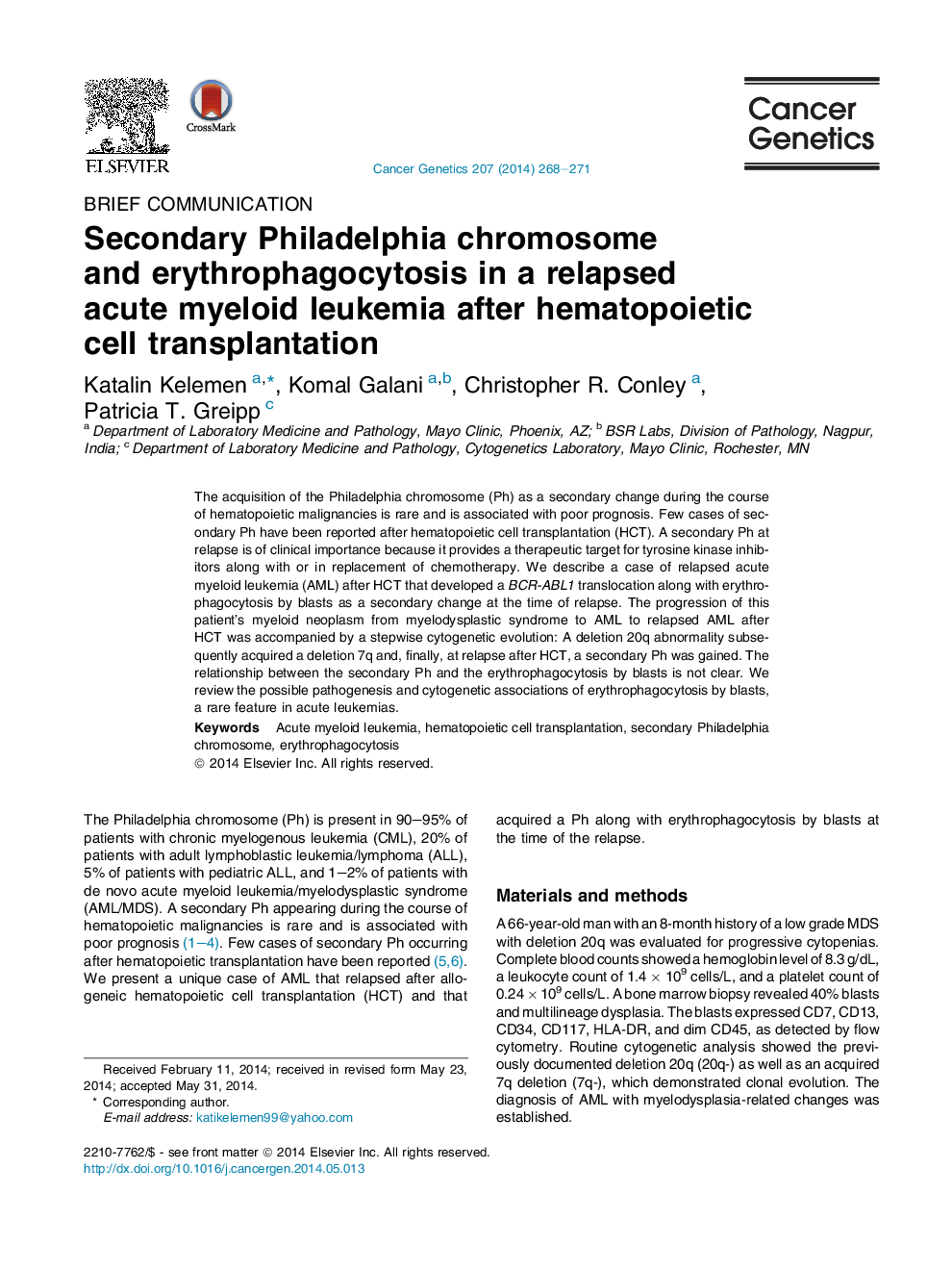| Article ID | Journal | Published Year | Pages | File Type |
|---|---|---|---|---|
| 2110362 | Cancer Genetics | 2014 | 4 Pages |
The acquisition of the Philadelphia chromosome (Ph) as a secondary change during the course of hematopoietic malignancies is rare and is associated with poor prognosis. Few cases of secondary Ph have been reported after hematopoietic cell transplantation (HCT). A secondary Ph at relapse is of clinical importance because it provides a therapeutic target for tyrosine kinase inhibitors along with or in replacement of chemotherapy. We describe a case of relapsed acute myeloid leukemia (AML) after HCT that developed a BCR-ABL1 translocation along with erythrophagocytosis by blasts as a secondary change at the time of relapse. The progression of this patient's myeloid neoplasm from myelodysplastic syndrome to AML to relapsed AML after HCT was accompanied by a stepwise cytogenetic evolution: A deletion 20q abnormality subsequently acquired a deletion 7q and, finally, at relapse after HCT, a secondary Ph was gained. The relationship between the secondary Ph and the erythrophagocytosis by blasts is not clear. We review the possible pathogenesis and cytogenetic associations of erythrophagocytosis by blasts, a rare feature in acute leukemias.
